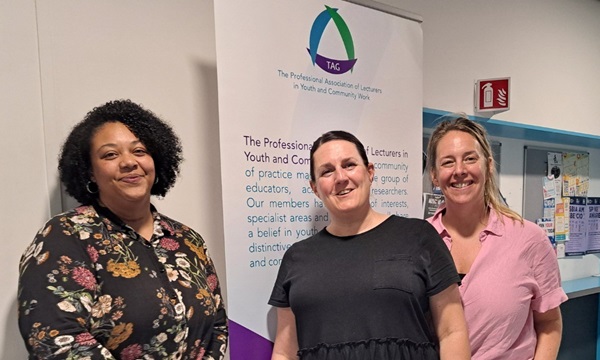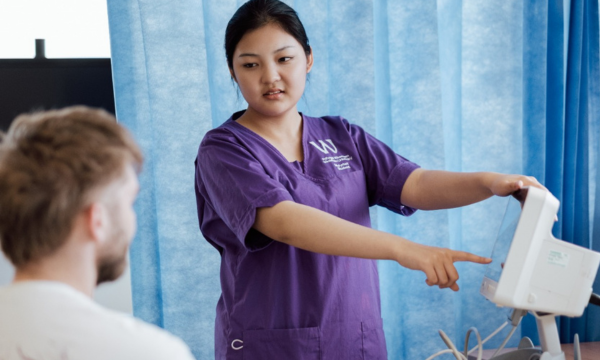
Academics from Wrexham University have authored a research paper, evaluating the experience of educators and students engaging in ‘HyFlex’ teaching and learning experiences on the institution’s Youth Work programme during the Covid-19 pandemic.
Hayley Douglas, Jess Achilleos, Yasmin Washbrook – all Senior Lecturers in Youth and Community Work at the University, and Professor Mandy Robbins, Associate Dean for Research, have published the paper, entitled ‘Pracademia—Role Modelling HyFlex Digital Pedagogies in Youth Work Education’.
HyFlex – short for Hybrid-Flexible – is a course design method and teaching approach designed to better accommodate student needs by combining online and classroom-based components.
The paper identifies the challenges and opportunities relating to HyFlex learning, as well as explores how digital skills gained in the classroom supported students to be more confident in role modelling these to deliver digital Youth Work, while aiding them in a post Covid-19 environment.
Findings from the research undertaken demonstrated a positive student perception of HyFlex in terms of their own learning experience and the impact they take from learning into practice.
Challenges identified by educators and students included time, training, and infrastructure to engage in the HyFlex learning approach. However, this was counteracted by increased accessibility and eventual improved digital skills, amongst both learners and educators. This led to new possibilities in feeling part of a wider community of practice.
The findings also reported that student experiences of HyFlex led to 46% feeling more able to support young people in a post Covid-19 digital world – with both students and educators taking their digital learning from the classroom and applying it to their Digital Youth Work practice.
Speaking about the process, which led to publication of the paper, Hayley said:
“We’re extremely pleased that our paper has now been published and we are in a position to share our findings, including the opportunities a HyFlex learning approach affords learners and us as educators but also the challenges it can pose.
“Initially adapting our pedagogical approach during the pandemic was a learning curve for us as educators but quickly, we saw the advantages of offering both that in-classroom learning experience, in conjunction with live, online sessions being available for students to be able to study from home.
“We are also delighted to say that we are one of the only Youth Work programmes nationally still providing this HyFlex approach post Covid.
“This has a number of benefits, particularly for our learners’ – not only does it mean improved digital skills, which will help them provide a flexible service to young people on qualifying but also, the flexibility that it gives them in balancing their studies but also their lives outside of university, for example, for those students with caring responsibilities.
“It also means that we are attracting a broader range of students from even further afield, for example we have students from Gibraltar, Jersey, South Wales, Hertfordshire, Warwickshire as just some examples – so this means geography is no longer a barrier as HyFlex allows our students to complete the course online completely remotely, should they wish.”
The paper has identified recommendations for future HyFlex approaches to be applied for future practice across Higher Education (HE) institutions, which can be utilised beyond Youth Work programmes.
Professor Robbins added:
“We are delighted to have published this paper, which evaluated the experience of educators and students engaging in ‘HyFlex’ learning experiences.
“Our paper identified a number of findings including that student experiences of HyFlex led to 46% more of our learners feeling more able and equipped to support young people in a post Covid-19 digital world – that’s incredibly encouraging.
“With the paper identifying a number of recommendations for future HyFlex approaches to be applied for future practice beyond Youth Work programmes but also wider across HE institutions, we’re hopeful adaptions can be made to support both educators and learners teach and learn in a way that suits their needs, as well as the young people our learners will go onto support.”






